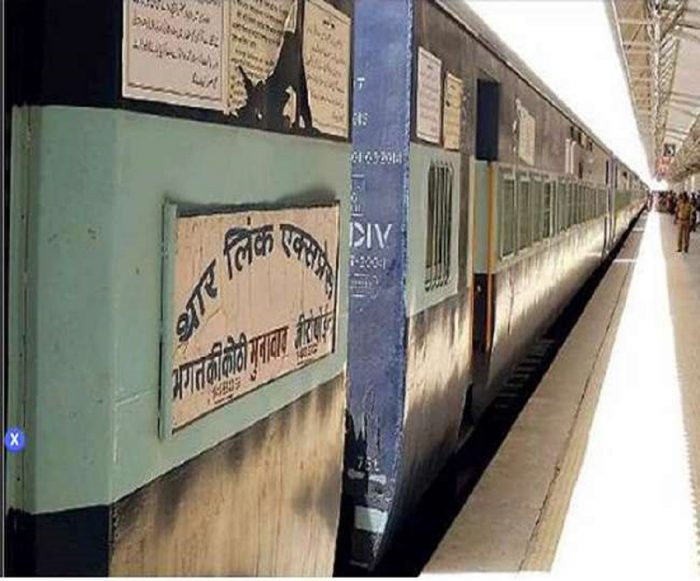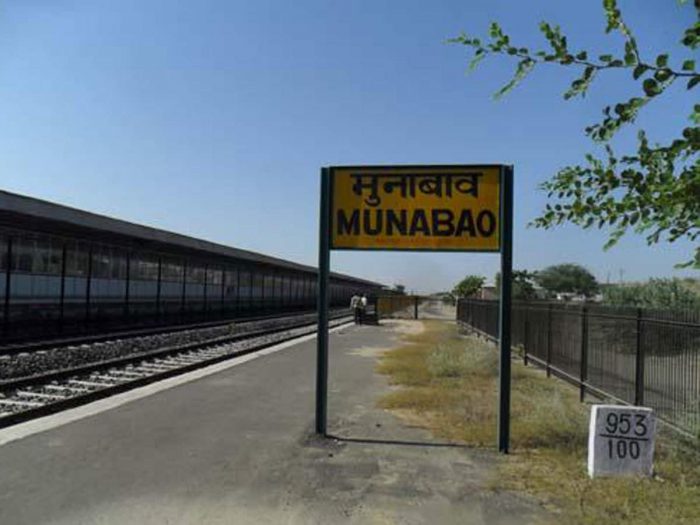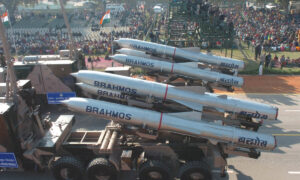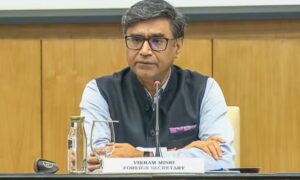
File Picture
On a chilly, early February 2006 morning, around 9am, as the loco pilot, in charge of the diesel engine, pressed the air horn and the train chugged out of Bhagat Ki Kothi station, just 3km off the city of medieval Rajput chivalry as well as grandeur, Jodhpur, an air of excitement brushed my face.
It was no normal journey for me. A new history was going to be scripted in a few days, and I was one of the few journalists, from Delhi, visiting Munabao- in Rajasthan’s Barmer district, the last station on India’s western border. Courtesy, the Indian Railways. The much hyped and anticipated once a week train services between the two bordering counties, Indian and Pakistan, were going to resume.

The train from Bhagat Ki Kothi up to Munabao is called the Link express, while its counterpart, running to Karachi, is known as Thar express. The Thar Express was a continuation of the previous Sind Mail which was revived after a period of 41 years on 18 February 2006.
The Link Express, peaked steam on the broad gauze tracks and whistled through the never ending stretches of sand dunes, dazzling under the morning sun. To say that the Thar looked stunning would be an understatement. A couple of hours into the journey and a senior officer of the north western zone of the Indian railways, pointed to some areas. “The movie, Border was filmed there.”
Bollywood’s war movie specialist, JP Dutta has a fascination for deserts and sand dunes, with many of his films (Ghulami, Border, Refugee etc) featuring deserts and camels. His 1997 magnum opus, Border, based on the 1971 battle of Longewala is arguably the best Indian celluloid depiction of war.
Like Dutta’s other movies it was a multi starrer, with some soulful numbers beautifully penned by Javed Akhtar and aesthetically composed by Anu Malik. Sunny Deol’s perfect portrayal of an army officer (Major Kuldip Singh Chandpuri)-all the characters were superbly essayed by others too, giving a sneak peek into the life of soldiers in the war field- and the soulful voice of Sonu Nigam crooning Sandese Aate Hain, for once drove me almost to a decade back. Before I could realize, the train had come to a screeching halt, and we had reached the destination. It was the last station of the Link Express.
It was a ‘wow moment’ for all of us. What a stunning- newly built- railway station in the middle of nowhere! The interiors were a far cry from the hundreds of other stations including in the major cities of the country. The passengers would go through the mandatory security/immigrations/customs clearances exercise here before boarding the Thar Express. On the other side, the same exercise was carried out in the freshly built Zero Point station-a few hundred metres from the international border and 8 kms off Khokhrapar in Sindh.
I remember this 77 year old, resident of a bordering village- that I had visited- who was all geared up to meet his sister, somewhere in Pakistan, after four decades. She lived with her family there. He had put his essentials and some food materials-namkeens, sweets that his sister was fond of in a bag. It was clearly understandable that the septuagenarian must have spent some time in cleaning the bag. “I am proud to be a railway man,” he said, claiming that he had worked for forty years in the Jodhpur division (then under the erstwhile Western Zone) a few years, after the zone was set up in 1951.
“You have to be a member of the railway family to realize how it feels when you are part of the people’s emotion, day in and day out,” he asserted.
Others in the village were equally excited as they believed the train service would bring down tension between the two countries and they would get respite from shelling from across the border.
Thirteen years, and after ferrying an estimated over four lakh passengers on board, the train that carried more emotion than passengers, has come to an indefinite halt. On July 9 2019, Pakistan suspended the train’s services. Seven days later on July 16, India cancelled operations of Thar Link Express.
It’s uncertain, when, and after how much time, the train will resume its duty. However, if it does, the sands of the Great Indian Desert will come alive, once again. Needless to say, the occasion would grip the minds of the passengers with joy laced with anxiety, once again.


















